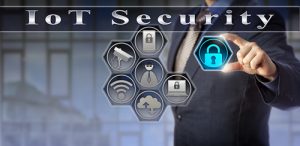
U.S. Sen. Cory Gardner (R-CO) on Sept. 14 commended passage by the U.S. House of Representatives of a bipartisan, bicameral bill that would establish minimum requirements for Internet-connected devices purchased by the federal government.
“I applaud the House of Representatives for passing this bipartisan, common-sense legislation to ensure the federal government leads by example and purchases devices that meet basic requirements to prevent hackers from accessing government systems,” said Sen. Gardner, who is co-founder of the Senate Cybersecurity Caucus.
The House on Monday gave approval to its amended version of the Internet of Things (IoT) Cybersecurity Improvement Act of 2019, H.R. 1668, introduced last March by U.S. Reps. Will Hurd (R-TX) and Robin Kelly (D-IL). Sen. Gardner and U.S. Sen. Mark Warner (D-VA) at the same time introduced the identical bill, S. 734, in their chamber, which will receive the House version and work to reconcile differences in the bills.
The legislation as passed would require the National Institute of Standards and Technology (NIST) to issue standards and guidelines addressing secure development, identity management, patching, and configuration management for IoT devices, according to a bill summary provided by Sen. Gardner’s office.
Additionally, the measure would direct the Office of Management and Budget (OMB) to issue guidelines for each agency that are consistent with the NIST recommendations and would charge OMB with reviewing the policies at least every five years. Any internet-connected devices purchased by the federal government would be required to comply with these recommendations, among other provisions, according to the summary.
“Most experts expect tens of billions of devices operating on our networks within the next several years as the IoT landscape continues to expand,” said Sen. Gardner. “We need to make sure these devices are secure from malicious cyberattacks as they continue to transform our society and add countless new entry points into our networks, particularly when they are integrated into the federal government’s networks.”



